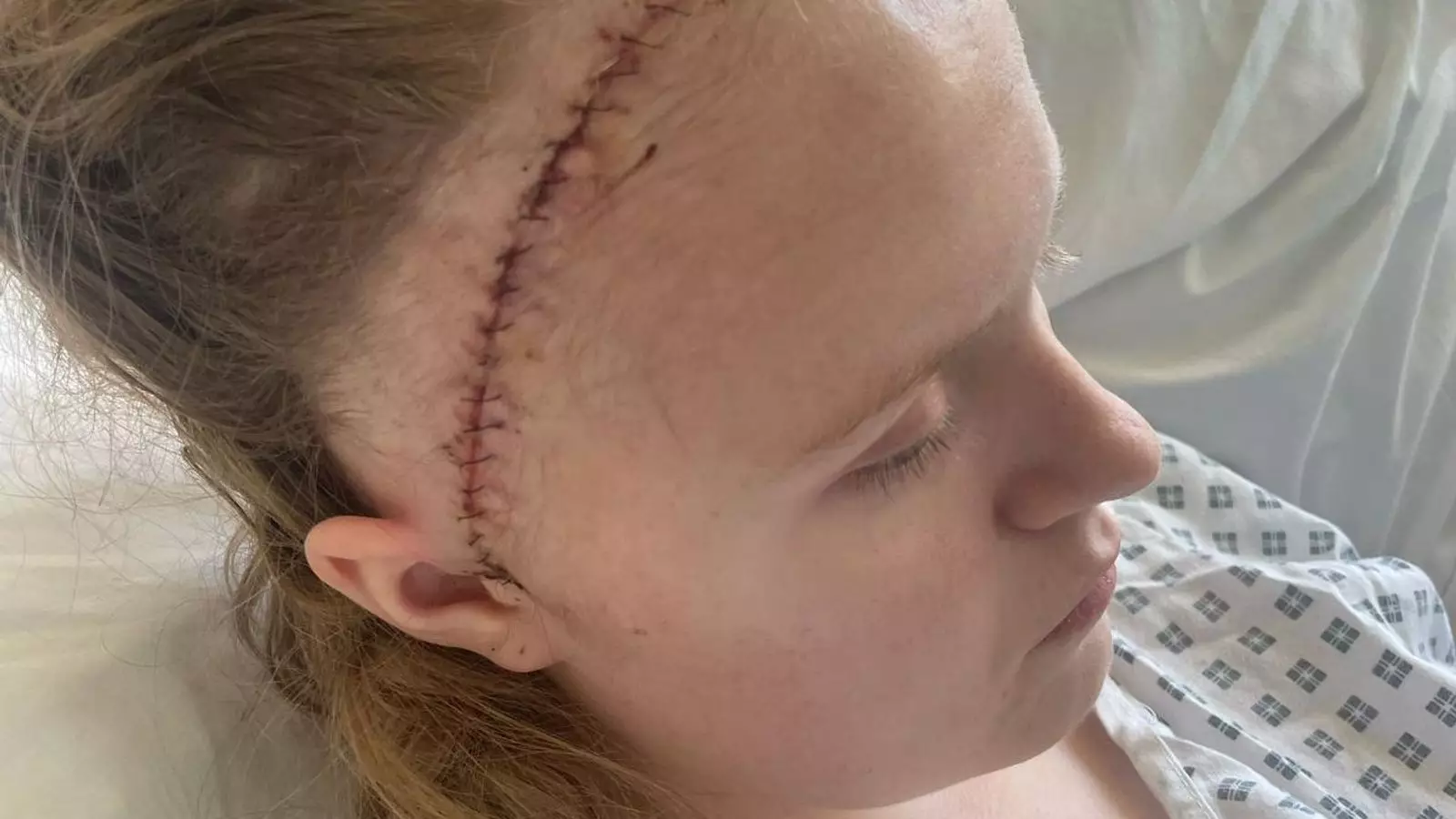The fragility of health often reinforces a facade of normalcy in our lives, until an incident shatters that comfort. Ellie Morris-Davies, a 16-year-old girl, found herself plunged into this harsh reality when she was diagnosed with a cavernoma – a cluster of abnormal blood vessels in the brain. Her struggle is not just a medical tale; it’s a raw narrative of fear, resilience, and a relentless drive to reclaim her passion for dance. At just 15, a series of transformative surgeries challenged the very essence of her youth, and the physical and emotional scars tell the story of a brave new world.
Diagnosed after presenting symptoms that mimicked a severe migraine, Ellie’s journey began with seemingly benign headaches and nausea. The dread of uncertainty loomed large as she reported episodes of vomiting and increased sensitivity to light. This pathway led her to Alder Hey Children’s Hospital in Liverpool, where doctors unraveled the grim mystery of her condition with an unexpected diagnosis: a brain bleed caused by a cavernoma. This diagnosis, while alarming, opened the door to immediate medical intervention, but not without its own challenges.
The Reality of Surgical Intervention
The decision to undergo a decompressive craniectomy—a procedure that involves removing part of the skull to relieve pressure—was a gambit. Surgeons did the unthinkable; they stored part of Ellie’s skull in her abdomen to keep it sterile before eventual reintegration. While such procedures are rare in children, they serve as a last resort in dire situations. Yet, even this extraordinary surgical intervention was not without complications. Ellie’s health deteriorated post-operation, pushing her into intensive care as she battled unforeseen infections—an ordeal that tested her and her family to the limits.
Ellie’s mother, Joanne, thought this was merely a bad migraine. The reality proved to be a relentless nightmare. The mental anguish of watching a child undergo such drastic medical interventions is a sentiment shared by many parents navigating similar pathways. The unintended physical consequences—like Ellie temporarily losing her ability to walk and talk—embodied the loss of hope for a young girl with dreams of dancing on stage. Yet, amidst the chaos, there lies an innate strength that emerges through adversity.
A Journey of Recovery
With each day in rehab-filled with physiotherapy and unwavering support from family and friends—Ellie gradually reclaimed parts of her identity. Though she faced immense frustration in her journey, she epitomized the essence of perseverance. Her grit was not just about physical recovery; it also involved reigniting her spirit. Dance was more than a hobby; it was a lifeline, a tether to normalcy, and a source of joy that she was determined to reclaim.
Ellie’s courageous journey from a place of despair to standing on a stage and singing once more is emblematic of the human spirit’s resilience. Her story resonates deeply with anyone who’s faced hurdles that at one time seemed insurmountable. The mental fortitude required to navigate recovery from such severe health issues reflects a complexity that often goes unacknowledged in chronic illness narratives.
Joanne recalls the emotional date when Ellie returned to perform, marked by tears of joy rather than sorrow. The mother-daughter duo personifies the fighting spirit—the willingness to outshine the darkness with an indomitable light. To see her daughter reclaiming her passion, despite the challenges, suggests that the journey doesn’t only reshape the body but also strengthens the mind and heart.
A Call to Recognize the Struggle
As society often glosses over the emotional and psychological toll of health crises, stories like Ellie’s remind us of the human element entrenched in medical narratives. The system can appear cold and clinical, reducing individuals to mere case studies. It’s vital to acknowledge personal narratives that challenge the reductive view of health as merely a set of statistics or outcomes.
In a landscape that often prioritizes efficiency over empathy, Ellie’s story calls for a shift—a need to foster compassion and connection in healthcare. It’s critical to ensure that while seeking cures, we don’t lose sight of the spirit and humanity that defines each patient. Ellie’s return to the stage symbolizes more than just physical recovery; it encapsulates the message that resilience shines brightest amidst adversity.

